Many delegates suggested reviewing the orientation of draft laws and resolutions that will be considered and approved in principle in one session. In fact, many draft laws when submitted to the National Assembly still have many different opinions.
Continuing the program of the 9th extraordinary session, on the afternoon of February 13, the National Assembly discussed in the hall the draft Law on Promulgation of Legal Documents (amended).
Through discussion, many delegates still had different opinions on the process of the National Assembly reviewing and approving draft laws, including the orientation that draft laws and resolutions will, in principle, be reviewed and approved in one session.
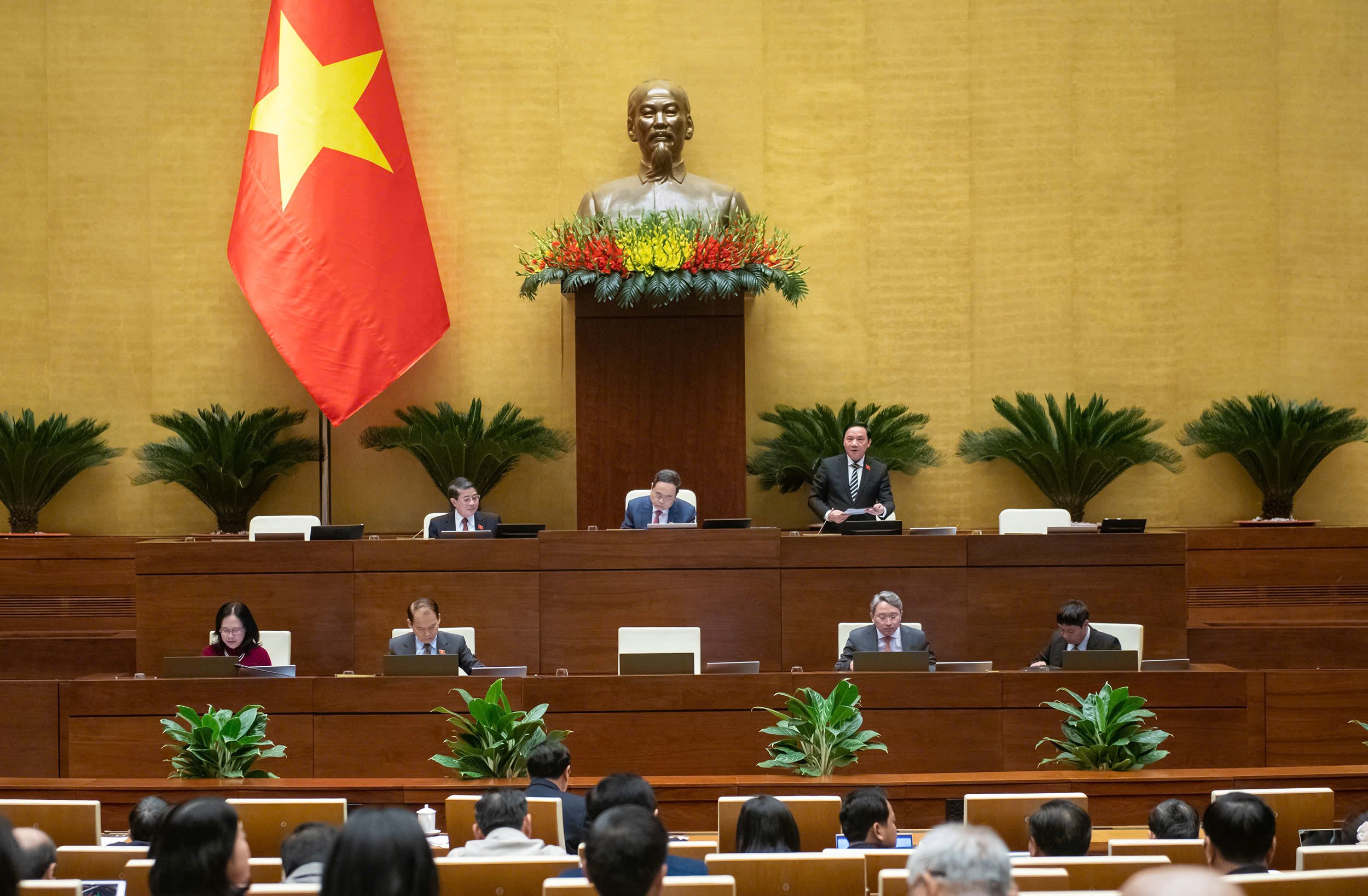
View of the parliament on the afternoon of February 13.
Delegate Nguyen Thi Viet Nga (Hai Duong Delegation) expressed her high agreement with many new contents that have been amended and supplemented this time in the draft submitted to the National Assembly, which will contribute to improving the quality of legal documents issued in the coming time.
Commenting on the regulations on the order of consideration and approval of the draft law when Article 40 of the draft stipulates that the order of consideration and approval is basically within one session, delegate Nguyen Thi Viet Nga said that further consideration is needed.
In reality, many draft laws, despite having undergone a very thorough consultation process, still have many different opinions when submitted to the National Assembly for comments.
Careful consideration of draft laws in two or more sessions is a necessary precaution in law-making, especially when our goal is to create laws with high stability and predictability.
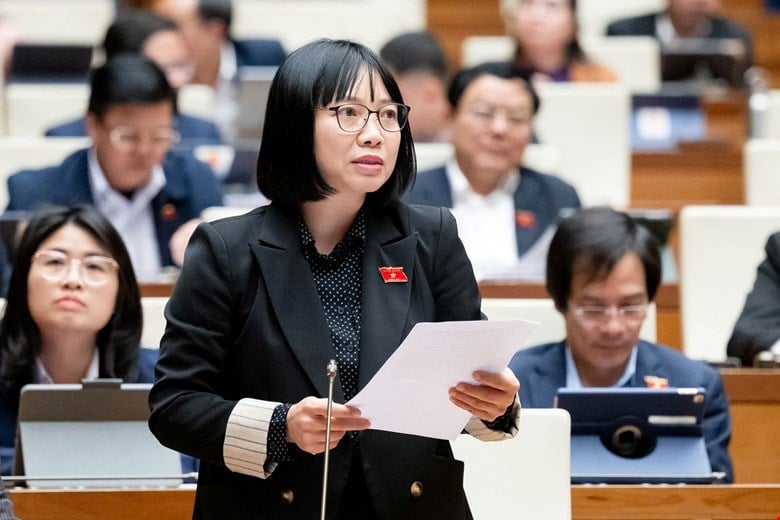
Delegate Nguyen Thi Viet Nga (Hai Duong delegation) spoke at the parliament on the afternoon of February 13.
"If we rush too much, it will be difficult for us to do it thoroughly and it will affect the quality of the passed documents," the Russian delegate suggested and suggested keeping the usual process, considering and passing laws in two sessions as it is now. In necessary cases, the law-making process should be regulated according to shortened procedures.
Agreeing with the above opinion, delegate Pham Van Hoa (Dong Thap delegation) said that implementing the one-session process greatly limits the right to participate and contribute ideas of National Assembly delegates.
Therefore, according to him, the implementation of the one-session process requires consultation and reference, and how to get National Assembly deputies to participate and speak more.
"How can the draft law, when approved, receive high consensus and agreement in the National Assembly?", the delegate expressed his opinion.
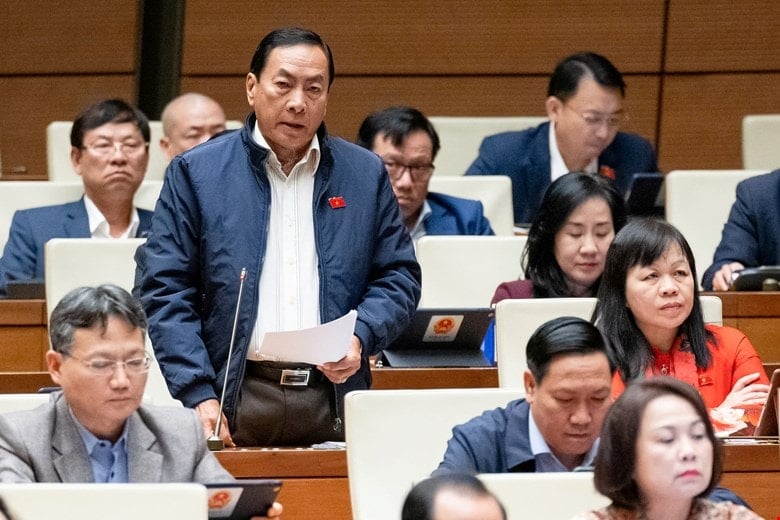
Delegate Pham Van Hoa (Dong Thap delegation) spoke and contributed ideas.
Meanwhile, delegate Tran Van Khai (Ha Nam delegation) analyzed the benefits when the National Assembly considers and approves draft laws, ordinances, and resolutions in one session instead of two sessions as before, except in some special cases.
According to him, if the National Assembly passes it, this will be a huge and groundbreaking change, aiming to speed up the process of building laws in accordance with practical requirements as well as the requirements of legal and administrative reform.
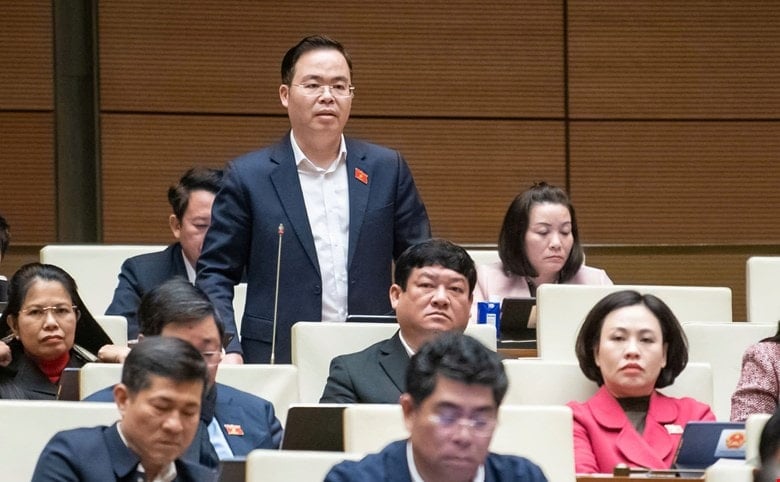
Delegate Tran Van Khai (Ha Nam delegation) participated in contributing opinions at the parliament.
"The special approach is to create flexibility and timeliness in adjusting policies to suit urgent draft laws that require quick response to reality. At the same time, it reduces the risk of delayed promulgation of legal documents affecting the overall management and administration of the country.
However, when laws are passed in a session, they also pose challenges and must be addressed. It is necessary to clearly define which criteria are applied to the review process in a session.
At the same time, the responsibility of the drafting agency and appraisal agency must be strengthened. The Ministry of Justice must take primary responsibility for reviewing and assessing the impact before submitting to the National Assembly," the delegate said.
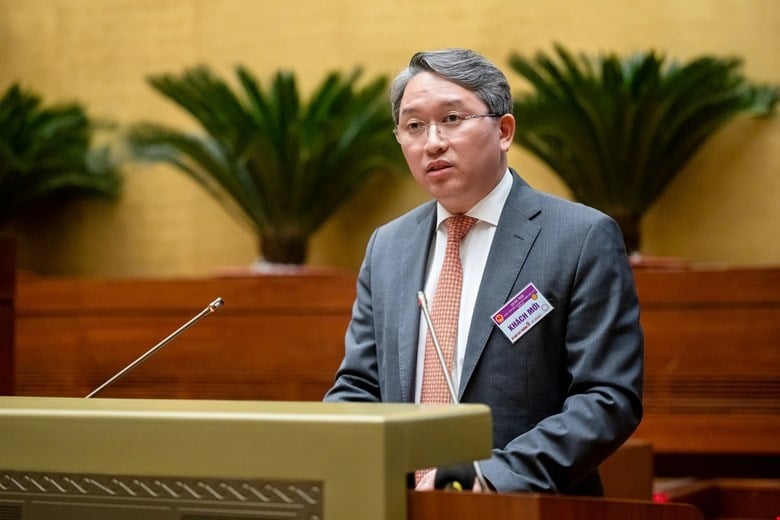
Minister of Justice Nguyen Hai Ninh explained and received opinions from delegates.
At the end of the discussion session, Minister of Justice Nguyen Hai Ninh received and clarified the contents raised by National Assembly delegates.
According to the Minister, resolving institutional bottlenecks is of great importance. New points in the draft Law on Promulgation of Legal Documents (amended) will contribute to clearing these bottlenecks.
Clarifying the content of the delegate's statement about the process, Minister Nguyen Hai Ninh said: In this draft law, the process of drafting legal documents has been fundamentally changed.
The Government is the body that decides on policies to serve as the basis for drafting laws to be submitted to the National Assembly.
"The Government's role now is to take responsibility to the end, so when the Government sees that it has enough conditions and quality, it will present it to the National Assembly.
In case the draft law is submitted to the National Assembly and the National Assembly finds it does not meet the conditions for approval, it can still be approved in the next session. That is, in principle, it can be approved in one session, but if it is not qualified, it can still be approved in the next session," Minister Ninh further explained.
Source: https://www.baogiaothong.vn/dai-bieu-de-nghi-can-nhac-viec-xem-xet-thong-qua-luat-trong-mot-ky-hop-192250213200610953.htm



![[Photo] Prime Minister Pham Minh Chinh meets with the Policy Advisory Council on Private Economic Development](https://vphoto.vietnam.vn/thumb/1200x675/vietnam/resource/IMAGE/2025/5/8/387da60b85cc489ab2aed8442fc3b14a)
![[Photo] President Luong Cuong presents the decision to appoint Deputy Head of the Office of the President](https://vphoto.vietnam.vn/thumb/1200x675/vietnam/resource/IMAGE/2025/5/8/501f8ee192f3476ab9f7579c57b423ad)
![[Photo] General Secretary To Lam begins official visit to Russia and attends the 80th Anniversary of Victory over Fascism](https://vphoto.vietnam.vn/thumb/1200x675/vietnam/resource/IMAGE/2025/5/8/5d2566d7f67d4a1e9b88bc677831ec9d)
![[Photo] General Secretary concludes visit to Azerbaijan, departs for visit to Russian Federation](https://vphoto.vietnam.vn/thumb/1200x675/vietnam/resource/IMAGE/2025/5/8/7a135ad280314b66917ad278ce0e26fa)
![[Photo] National Assembly Chairman Tran Thanh Man chairs the meeting of the Subcommittee on Documents of the First National Assembly Party Congress](https://vphoto.vietnam.vn/thumb/1200x675/vietnam/resource/IMAGE/2025/5/8/72b19a73d94a4affab411fd8c87f4f8d)



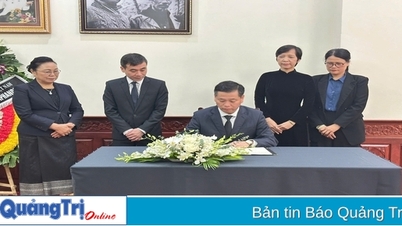




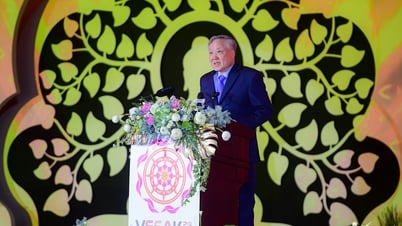



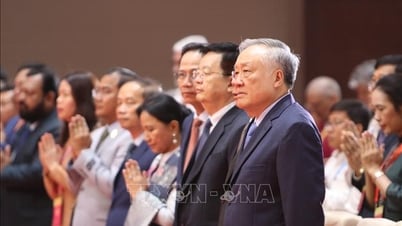












































![[Photo] Prime Minister Pham Minh Chinh talks on the phone with Singaporean Prime Minister Lawrence Wong](https://vphoto.vietnam.vn/thumb/402x226/vietnam/resource/IMAGE/2025/5/8/e2eab082d9bc4fc4a360b28fa0ab94de)

















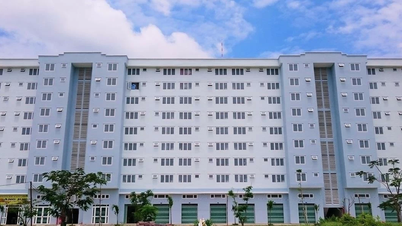












Comment (0)